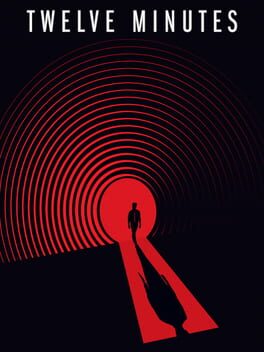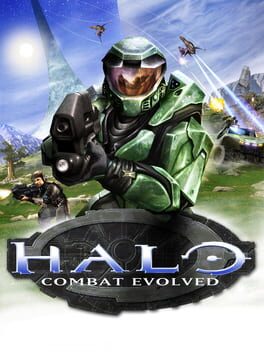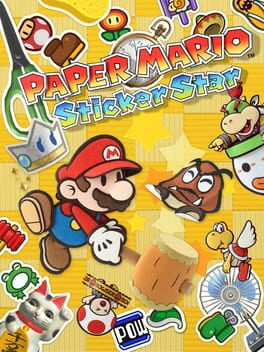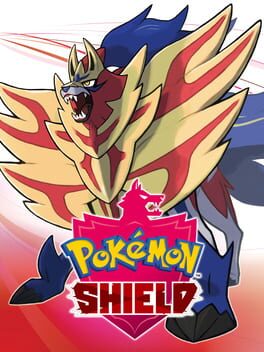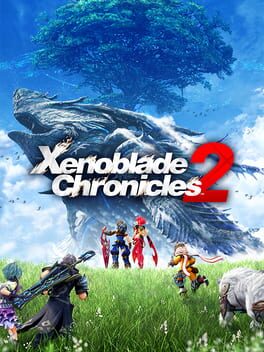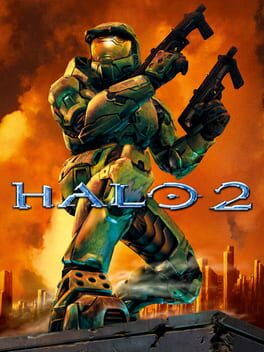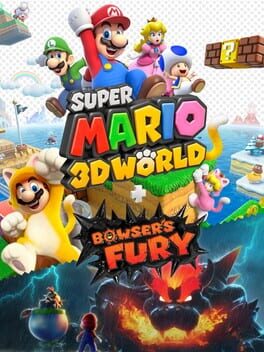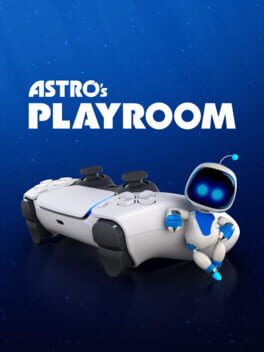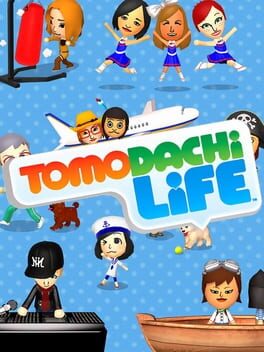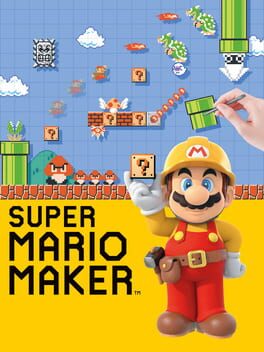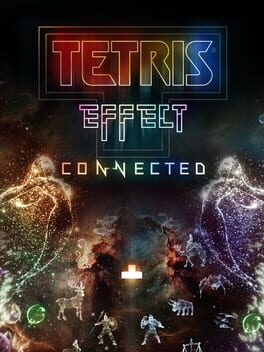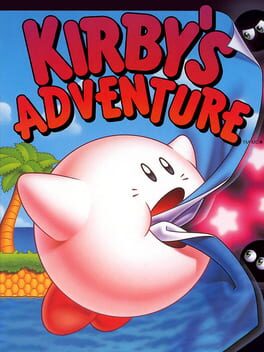Br0dee
2021
2001
For how Halo is considered the pioneer of the modern FPS genre, it's a really interesting experience playing through this game. Tremendous age shows (Dozens of repeating areas/floors, mundane backtracking, and overall jank) but at the same time the gunplay and vehicle controls hold up incredibly well and still offer a really fun time.
It's very far from perfect, but an admirable piece of history that, despite many flaws, still holds value.
It's very far from perfect, but an admirable piece of history that, despite many flaws, still holds value.
2012
While Persona 4 doesn't excel in any area compared to the other two games, it's ability to combine both the most immersive world through Inaba in an RPG I've played yet and an entertaining/unique cast that constantly made me smile is what makes it so special to me. It constantly reaffirms the "truth" theme in an enthralling mystery story despite some weak points towards the end. Not even talking about the beautiful OST and overall presentation, and everything else that makes the Persona series so great. I'm so happy I had such a great turnaround on this game, and I'm sure it'll stay as one of my favorite games of all time.
I am incredibly disappointed in my personal decision, back in 2020, to feed into the outrage of the leaks and ignore the game at launch, despite my initial excitement. While far from perfect and fails to match the cohesion of the first title, the mostly successful narrative risks Part II decides to take can only be understood through a proper playthrough.
I find myself grappling with the narrative and structure more than anything given how fine-tuned and excellent the gameplay experience itself is. There seems to be a collective tired attitude towards the onslaught of cinematic Sony titles (rightfully so), but Naughty Dog is undeniably the peak of this direction. A realistic level of fluidity and weight to the combat and high attention to detail pairs well with the unavoidable insertion of cutscenes. Similar to the first, there's a toll to your actions as a player that would not have the same effect in any other medium, even if the delivery is awkward at moments (quick-time events, for example).
To summarize the problem, the narrative's delivery is largely disrupted by the structure, mainly boiling down to Ellie's section in Seattle. The game's opening is shocking yet effective, but the following 10+ hours feel poorly utilized. I appreciate the growing severity in her kills that leads the player to question the necessity behind enacting revenge, but your days in Seattle are mostly uneventful and incredibly repetitive. Ellie is forced to follow along the clues Tommy have left behind, with very little else happening in between. The flashback sequences, which are incredibly meaningful and effective in piecing together the moments between the two games, feel like a direct acknowledgment of the slowness, as very little plot progression is made to entertain the player in between. The enjoyable gameplay sequences keep the player stringing along, but even this aspect had its lower moments; Mainly, the open area segment when Ellie first arrives in Seattle, carrying over one of the weakest and blandest aspects from Uncharted 4.
Abby's route mostly resolves these issues, but suffers from the absence of an "end-goal" that consistently drives the plot. It makes the events feel relatively insignificant when compared to the ongoing Wolves vs Scars conflict and the tension in Ellie's hunt, but that insignificance is critical to humanizing her character. The moments are not equally engaging, but convincing, which is a worthwhile trade-off for the goals of the game.
Poor structure and consequently characterization stand out far more given how exceptionally executed these factors are in Part I, where the clear end-goal allowed for time spent to develop the relationship of Joel and Ellie and their interactions with the sparse yet memorable side cast, while narrative progress was still being made. The majority of Part II's side cast feel like plot devices to fuel the grief and fury of Ellie and Abby; That isn't to say their interactions are not believable nor engaging, but they never create a level of emotional attachment established with the cast of the first game.
Fortunately, these flaws are the sacrifice for an exceptional thematic continuation of Ellie's journey. I cannot understate the importance that physically playing through the game has on your perspective towards Ellie and Abby's actions. It goes beyond understanding their fuel for revenge, but the misery of watching their lives spiral into chaos as they act on these feelings. The switch in protagonist is not a shallow explanation that there are two sides to every story, but a greater comment on how the first-person gameplay experience forces us to attach ourselves and root for a side, where our actions and emotional attachments are irrational.
Not only are these feelings irrational, but most importantly, inconsistent. If time reverts and events change, where Joel now forces himself into the emergency room, and Abby is now at the side of the doctor, would he make the same decisions? Abby's physical presence does not change the fact that killing the doctor will leave the child fatherless and spark a thirst for revenge, but the ability for Joel to know beforehand may have led to a completely different ending where Part II cannot exist. This is the main aspect of the narrative I feel is misconstrued, that Ellie's vicious killing of Scars and Wolves is contradictory to the stance she takes in the end, as if that itself is a flaw when in actuality it's the point. If not for Ellie, Abby's interactions with Lev and Yara is Naughty Dog being as blatant as possible. I find boiling the game down to the shallow conclusion "Revenge is bad" does a disservice to the numerous moments throughout the game where Ellie and Abby's humanity are challenged, and that their development as characters is not so linear in their realization that their actions have consequences. The final few scenes could not be a more horrifying yet beautifully portrayed depiction of inconsistency.
Even after the sweeps of controversy that consumed the launch of Part II back in 2020, I find myself satisfied with Naughty Dog's consistent level of quality and effort to take risks in an era of Sony that feels stale and safe. I love the Infected world of Last of Us but am looking forward to how ND's talent can be handled in a new series going forward.
I find myself grappling with the narrative and structure more than anything given how fine-tuned and excellent the gameplay experience itself is. There seems to be a collective tired attitude towards the onslaught of cinematic Sony titles (rightfully so), but Naughty Dog is undeniably the peak of this direction. A realistic level of fluidity and weight to the combat and high attention to detail pairs well with the unavoidable insertion of cutscenes. Similar to the first, there's a toll to your actions as a player that would not have the same effect in any other medium, even if the delivery is awkward at moments (quick-time events, for example).
To summarize the problem, the narrative's delivery is largely disrupted by the structure, mainly boiling down to Ellie's section in Seattle. The game's opening is shocking yet effective, but the following 10+ hours feel poorly utilized. I appreciate the growing severity in her kills that leads the player to question the necessity behind enacting revenge, but your days in Seattle are mostly uneventful and incredibly repetitive. Ellie is forced to follow along the clues Tommy have left behind, with very little else happening in between. The flashback sequences, which are incredibly meaningful and effective in piecing together the moments between the two games, feel like a direct acknowledgment of the slowness, as very little plot progression is made to entertain the player in between. The enjoyable gameplay sequences keep the player stringing along, but even this aspect had its lower moments; Mainly, the open area segment when Ellie first arrives in Seattle, carrying over one of the weakest and blandest aspects from Uncharted 4.
Abby's route mostly resolves these issues, but suffers from the absence of an "end-goal" that consistently drives the plot. It makes the events feel relatively insignificant when compared to the ongoing Wolves vs Scars conflict and the tension in Ellie's hunt, but that insignificance is critical to humanizing her character. The moments are not equally engaging, but convincing, which is a worthwhile trade-off for the goals of the game.
Poor structure and consequently characterization stand out far more given how exceptionally executed these factors are in Part I, where the clear end-goal allowed for time spent to develop the relationship of Joel and Ellie and their interactions with the sparse yet memorable side cast, while narrative progress was still being made. The majority of Part II's side cast feel like plot devices to fuel the grief and fury of Ellie and Abby; That isn't to say their interactions are not believable nor engaging, but they never create a level of emotional attachment established with the cast of the first game.
Fortunately, these flaws are the sacrifice for an exceptional thematic continuation of Ellie's journey. I cannot understate the importance that physically playing through the game has on your perspective towards Ellie and Abby's actions. It goes beyond understanding their fuel for revenge, but the misery of watching their lives spiral into chaos as they act on these feelings. The switch in protagonist is not a shallow explanation that there are two sides to every story, but a greater comment on how the first-person gameplay experience forces us to attach ourselves and root for a side, where our actions and emotional attachments are irrational.
Not only are these feelings irrational, but most importantly, inconsistent. If time reverts and events change, where Joel now forces himself into the emergency room, and Abby is now at the side of the doctor, would he make the same decisions? Abby's physical presence does not change the fact that killing the doctor will leave the child fatherless and spark a thirst for revenge, but the ability for Joel to know beforehand may have led to a completely different ending where Part II cannot exist. This is the main aspect of the narrative I feel is misconstrued, that Ellie's vicious killing of Scars and Wolves is contradictory to the stance she takes in the end, as if that itself is a flaw when in actuality it's the point. If not for Ellie, Abby's interactions with Lev and Yara is Naughty Dog being as blatant as possible. I find boiling the game down to the shallow conclusion "Revenge is bad" does a disservice to the numerous moments throughout the game where Ellie and Abby's humanity are challenged, and that their development as characters is not so linear in their realization that their actions have consequences. The final few scenes could not be a more horrifying yet beautifully portrayed depiction of inconsistency.
Even after the sweeps of controversy that consumed the launch of Part II back in 2020, I find myself satisfied with Naughty Dog's consistent level of quality and effort to take risks in an era of Sony that feels stale and safe. I love the Infected world of Last of Us but am looking forward to how ND's talent can be handled in a new series going forward.
Paper Mario Sticker Star is a fundamentally flawed video game for two reasons:
1. Its central RPG sticker battling mechanic is completely useless, providing no necessary benefits besides wasting resources
2. It attempts to transfer over very similar mechanics/designs of the previous RPG focused games like TTYD and turn them into a heavy adventure-puzzling platforming; but this clash of genre and mechanics simply do not work
These two reasons are the backbone of everything wrong with this abomination of a game and what makes it so unlikable. Here are just a few reasons why:
- The level design in general is some of the worst I've ever experienced in a video game. As explained before, the "PM RPG format" simply doesn't work in areas designed around platforming and movement. Everything feels so clunky and difficult to control and perform, which leads to so many useless encounters and hindrances that at time feel unavoidable and provide you with no benefits. These simply elevate the already mundane tasks and paths the game has you go along. Some of the levels in World 2, for instance, such as the ones that require you to chose paths while continually traversing underground (and require trial and error to reach the end) and traveling around and inside a Sphinx, are some of the worst levels I've ever played in a video game, and gave me some of the worst stress of my life.
- Progression at multiple times is blocked by required "Thing" items you must collect, and are scattered in levels at random. While adventure elements such as this mechanic work in tons of other games, Sticker Star makes it as tedious as it could be. That specific item you need could be in literally any level up until that point, and just by missing one despite collecting the abundant other optional Things, you could be monumentally screwed over. That is NES levels of frustration - and when exploration is already an insane drag to begin with, it's just the icing on the cake of a horrible session.
- "Fortunately" these bizarre barriers are at their worst in boss fights. Each boss fight can be beaten with just regular items, but unless you want to use everything in your already limited inventory, you're gonna need a specific Thing to properly beat it. Beating these without a guide feels almost impossible, as most of the time the Thing you need is quite ambiguous and requires countless trial and error because of the way Things are designed to be used (you must go to a specific place to rebuy an already used Thing and then use a specific shop to then turn that Thing into a sticker; if you use it by accident or that Thing turns out to be the incorrect one needed, then you must repeat the process all over again.)
Sticker Star breaks so many basic necessities that a game must follow, and first and foremost is wasting the player's time; And that's all this game really is. Whether it means requiring you to repeat mundane tasks or creating strange and ambiguous barriers for progression or just being a slog to get through, Sticker Star does everything in its power to make you hate the game as much as possible. My 15 hour play through felt like an eternity of hell, but I don't think I've ever been happier to beat a game. It's an embarrassment to the fantastic titles Nintendo continually puts out, and it's an embarrassment to the joy and quality video games are suppose to bring you. This is by far the worst game I've ever played, and I hope I never have to experience something of this level of disgust ever again.
1. Its central RPG sticker battling mechanic is completely useless, providing no necessary benefits besides wasting resources
2. It attempts to transfer over very similar mechanics/designs of the previous RPG focused games like TTYD and turn them into a heavy adventure-puzzling platforming; but this clash of genre and mechanics simply do not work
These two reasons are the backbone of everything wrong with this abomination of a game and what makes it so unlikable. Here are just a few reasons why:
- The level design in general is some of the worst I've ever experienced in a video game. As explained before, the "PM RPG format" simply doesn't work in areas designed around platforming and movement. Everything feels so clunky and difficult to control and perform, which leads to so many useless encounters and hindrances that at time feel unavoidable and provide you with no benefits. These simply elevate the already mundane tasks and paths the game has you go along. Some of the levels in World 2, for instance, such as the ones that require you to chose paths while continually traversing underground (and require trial and error to reach the end) and traveling around and inside a Sphinx, are some of the worst levels I've ever played in a video game, and gave me some of the worst stress of my life.
- Progression at multiple times is blocked by required "Thing" items you must collect, and are scattered in levels at random. While adventure elements such as this mechanic work in tons of other games, Sticker Star makes it as tedious as it could be. That specific item you need could be in literally any level up until that point, and just by missing one despite collecting the abundant other optional Things, you could be monumentally screwed over. That is NES levels of frustration - and when exploration is already an insane drag to begin with, it's just the icing on the cake of a horrible session.
- "Fortunately" these bizarre barriers are at their worst in boss fights. Each boss fight can be beaten with just regular items, but unless you want to use everything in your already limited inventory, you're gonna need a specific Thing to properly beat it. Beating these without a guide feels almost impossible, as most of the time the Thing you need is quite ambiguous and requires countless trial and error because of the way Things are designed to be used (you must go to a specific place to rebuy an already used Thing and then use a specific shop to then turn that Thing into a sticker; if you use it by accident or that Thing turns out to be the incorrect one needed, then you must repeat the process all over again.)
Sticker Star breaks so many basic necessities that a game must follow, and first and foremost is wasting the player's time; And that's all this game really is. Whether it means requiring you to repeat mundane tasks or creating strange and ambiguous barriers for progression or just being a slog to get through, Sticker Star does everything in its power to make you hate the game as much as possible. My 15 hour play through felt like an eternity of hell, but I don't think I've ever been happier to beat a game. It's an embarrassment to the fantastic titles Nintendo continually puts out, and it's an embarrassment to the joy and quality video games are suppose to bring you. This is by far the worst game I've ever played, and I hope I never have to experience something of this level of disgust ever again.
2019
Pokemon Shield is not a good game. An unfortunate result of rushed development leading to a mind numbing story experience, poorly implemented new features with so much wasted potential (like the wild areas), and a lack of polish that sticks out like a sore thumb in the new generation.
With that being said, I can't deny the fun I had. I grew to really like Hop and Marnie as rivals, and Leon is one of the best champions in the series. Pokemon models and moves in general were pretty well animated and looked crisp (Never cared for the National Dex either). And above all else, the main hook of catching and training Pokemon is as engaging and rewarding as ever.
I hate this chain that Game Freak holds over me; despite them seemingly entering a new era of mediocre titles with little effort, it'll still garner some enjoyment purely based off of the namesake - and unfortunately I'm a product of this. I hope Legends ends up being the right step forward we're all hoping it is.
With that being said, I can't deny the fun I had. I grew to really like Hop and Marnie as rivals, and Leon is one of the best champions in the series. Pokemon models and moves in general were pretty well animated and looked crisp (Never cared for the National Dex either). And above all else, the main hook of catching and training Pokemon is as engaging and rewarding as ever.
I hate this chain that Game Freak holds over me; despite them seemingly entering a new era of mediocre titles with little effort, it'll still garner some enjoyment purely based off of the namesake - and unfortunately I'm a product of this. I hope Legends ends up being the right step forward we're all hoping it is.
2020
Omori's clash of Earthbound-inspired RPG gameplay and psychological horror narrative experiences is both the strongest and weakest part of the game. While symbolically the parallel works incredibly well, its result in quality can feel quite jarring.
When in the Headspace, or bubbly RPG sections on your quest to save a friend, the variety in location and characters is interesting, but it only goes so far. I felt myself pretty bored wandering through these sections, and despite the combat system's intriguing concept of being able to switch weaknesses on the fly with the Emotion System, it felt largely underutilized in 95% of the battles you fought with low level enemies. I don't really have a problem with the ease of difficulty, its moreso the quickness of battles and low amount of SP that makes me resort to spamming basic attacks for the majority of my play through (Bosses were the fine exception though). I always just found myself wanting to get back into the Real World; luckily that payed off.
Omori's tragic finale is something I feel will sit with me for a really long time. Despite the abstract visuals and horror undertones that build upon the imagery in a very meaingful way, it also somehow still feels shockingly real. Seeing the immeasurable happiness the group in their early years felt with each other, to then ask the question whether that joy is something the characters will ever be able to reach again, is overwhelming. It feels impossible, just like the many other questions raised. Sunny's journey of perseverance, while may not create an absolute resolution, is inspiring and really ties the game's themes together. This all culminates into one of the best finales I've witnessed in a game until now.
Like I said before, the parallel in worlds and the meaning it brings to the journey is irreplaceable and one of the most important aspects to the fantastic narrative. I just wish Head Space's minute to minute gameplay did the rest of the experience justice. Despite that, Omori was an unforgettable experience that I think everyone should play to the end, because it's more than worth it.
When in the Headspace, or bubbly RPG sections on your quest to save a friend, the variety in location and characters is interesting, but it only goes so far. I felt myself pretty bored wandering through these sections, and despite the combat system's intriguing concept of being able to switch weaknesses on the fly with the Emotion System, it felt largely underutilized in 95% of the battles you fought with low level enemies. I don't really have a problem with the ease of difficulty, its moreso the quickness of battles and low amount of SP that makes me resort to spamming basic attacks for the majority of my play through (Bosses were the fine exception though). I always just found myself wanting to get back into the Real World; luckily that payed off.
Omori's tragic finale is something I feel will sit with me for a really long time. Despite the abstract visuals and horror undertones that build upon the imagery in a very meaingful way, it also somehow still feels shockingly real. Seeing the immeasurable happiness the group in their early years felt with each other, to then ask the question whether that joy is something the characters will ever be able to reach again, is overwhelming. It feels impossible, just like the many other questions raised. Sunny's journey of perseverance, while may not create an absolute resolution, is inspiring and really ties the game's themes together. This all culminates into one of the best finales I've witnessed in a game until now.
Like I said before, the parallel in worlds and the meaning it brings to the journey is irreplaceable and one of the most important aspects to the fantastic narrative. I just wish Head Space's minute to minute gameplay did the rest of the experience justice. Despite that, Omori was an unforgettable experience that I think everyone should play to the end, because it's more than worth it.
Reflecting on my experience with Xenoblade Chronicles 2, which I first started in June of 2021, is beyond difficult. Despite everything that's changed in my life since then, Xenoblade has remained one of the few constants, even through periods of inactivity and (sometimes lengthy) breaks.
I think about the first time I witnessed the Kingdom of Uraya in its full glory, swept away by the incredible score, lighting effects, and sheer wonder. I think about the futile attempts at explaining the combat system to family members, and why every piece of the cluttered UI is integral to all of the intricacies at play. I think about the constant attempts at "Tiger! Tiger!", surprised by how much time I could sink into a relatively small mini game, still entertained and eager to earn crystals for Poppi. I think about the late nights in handheld, plugging away at random affinity charts, as I kill yet another Perplexed Stoyan in Leftheria so I can earn a trivial boost in power to Mythra's Specials.
Throughout all of my individual memories, Xenoblade Chronicles 2 constantly left me in awe by its incredibly grand scale, seen in every aspect of the game. Every new Titan was a visual treat, and a gateway to a plethora of new exploration options for me to tackle, all while slowly picking away at an endless amount of microtasks and fighting as many unique monsters as I could find. This loop was only so effective because of the masterful combat system at its center (something that only experience can properly do justice), with the central blade mechanic forcing me to constantly adapt and improve my technique. While the story itself is far from perfect, I grew to feel connected to the cast and the Aegis' journey to Elysium, with the elusive locale propelling the philosophical pondering on what it means to live past your physical presence in such a cruel but realistic world (which truly shines in the very end).
Once I came upon the last few chapters of the game, I quickly scurried to re-explore all of the Titans that needed more of my attention, and began grinding out affinity charts I deemed important. After a certain point though, I came to a scary realization that, even though I didn't quite complete as much as I had hoped, I was contempt with the progress I had made and began to shift my focus entirely on the last few story missions. Rolling credits, it felt like a weight had been lifted off of my shoulders, left with nothing but appreciation for the magical experience that Xenoblade Chronicles 2 (which happened to be my 200th game completed, woo-hoo) was for me.
I think about the first time I witnessed the Kingdom of Uraya in its full glory, swept away by the incredible score, lighting effects, and sheer wonder. I think about the futile attempts at explaining the combat system to family members, and why every piece of the cluttered UI is integral to all of the intricacies at play. I think about the constant attempts at "Tiger! Tiger!", surprised by how much time I could sink into a relatively small mini game, still entertained and eager to earn crystals for Poppi. I think about the late nights in handheld, plugging away at random affinity charts, as I kill yet another Perplexed Stoyan in Leftheria so I can earn a trivial boost in power to Mythra's Specials.
Throughout all of my individual memories, Xenoblade Chronicles 2 constantly left me in awe by its incredibly grand scale, seen in every aspect of the game. Every new Titan was a visual treat, and a gateway to a plethora of new exploration options for me to tackle, all while slowly picking away at an endless amount of microtasks and fighting as many unique monsters as I could find. This loop was only so effective because of the masterful combat system at its center (something that only experience can properly do justice), with the central blade mechanic forcing me to constantly adapt and improve my technique. While the story itself is far from perfect, I grew to feel connected to the cast and the Aegis' journey to Elysium, with the elusive locale propelling the philosophical pondering on what it means to live past your physical presence in such a cruel but realistic world (which truly shines in the very end).
Once I came upon the last few chapters of the game, I quickly scurried to re-explore all of the Titans that needed more of my attention, and began grinding out affinity charts I deemed important. After a certain point though, I came to a scary realization that, even though I didn't quite complete as much as I had hoped, I was contempt with the progress I had made and began to shift my focus entirely on the last few story missions. Rolling credits, it felt like a weight had been lifted off of my shoulders, left with nothing but appreciation for the magical experience that Xenoblade Chronicles 2 (which happened to be my 200th game completed, woo-hoo) was for me.
2004
It isn't the full improvement over the original that I'm hoping will happen, but the Halo series is truly beginning to mold into its own identity and something special as it begins to solidify itself as the gaming icon we see it as today.
From the introduction of the cinematic cutscenes to the larger variety of locations, you can still feel the actiony science-fiction war epic the original was aiming for, but now with even more to love about the universe. The breaking of factions as the Covenant aims to complete its mission of the Great Journey once again as Master Chief is left to orchestrate their destruction offers the same exhilarating feel of Combat Evolved with more to learn and appreciate. It's far less conclusive than CE (The ending in particular I feel pretty lukewarm on) but it gives us more of a reason to completely grasp every side of the picture. While character-wise the Arbiter and his missions weren't as interesting as MC's, the change in pace and objective offered a more introspective look into the Covenant and peaked my interest of the internal battle brewing between the Brutes and the Elites. Seeing it all interwoven so neatly until the last moment was brilliant and I really can't wait to see how the adventure develops further into the future.
The gunplay was already so well constructed in CE, it's no secret, even to Bungie. From the bigger additions like new vehicles and duel wielding to the smaller things like the improved health gauge system and shorter level times, it's the same satisfying combat but even more fast and fluid. Duel wielding two guns and immediately throwing a bomb to bouncing back and taking out a long rifle, it is unbelievable both how well the game holds up and how much of a badass you feel. One thing I loved about CE was how the science fiction and more realistic-war aspects complimented themselves so well, and it could not be more true here even as this grow more experimental.
It's clear that there's still more to improve though. The stronger variety in locations was a pleasant surprise, but the confusing sense of progression in certain levels, broken checkpoint system, and onslaught of repetitive corridors and waves are unfortunately still present. It's an improvement compared to CE but with how progressive everything else feels, it stands out as outdated and the weak link.
At the hands of the grand vastness of outer space, there is no end to war. Master Chief's struggle yet style continues to carry him forward to epic proportions, with even more potential from here on out. I can't wait to continue along the series playthrough.
From the introduction of the cinematic cutscenes to the larger variety of locations, you can still feel the actiony science-fiction war epic the original was aiming for, but now with even more to love about the universe. The breaking of factions as the Covenant aims to complete its mission of the Great Journey once again as Master Chief is left to orchestrate their destruction offers the same exhilarating feel of Combat Evolved with more to learn and appreciate. It's far less conclusive than CE (The ending in particular I feel pretty lukewarm on) but it gives us more of a reason to completely grasp every side of the picture. While character-wise the Arbiter and his missions weren't as interesting as MC's, the change in pace and objective offered a more introspective look into the Covenant and peaked my interest of the internal battle brewing between the Brutes and the Elites. Seeing it all interwoven so neatly until the last moment was brilliant and I really can't wait to see how the adventure develops further into the future.
The gunplay was already so well constructed in CE, it's no secret, even to Bungie. From the bigger additions like new vehicles and duel wielding to the smaller things like the improved health gauge system and shorter level times, it's the same satisfying combat but even more fast and fluid. Duel wielding two guns and immediately throwing a bomb to bouncing back and taking out a long rifle, it is unbelievable both how well the game holds up and how much of a badass you feel. One thing I loved about CE was how the science fiction and more realistic-war aspects complimented themselves so well, and it could not be more true here even as this grow more experimental.
It's clear that there's still more to improve though. The stronger variety in locations was a pleasant surprise, but the confusing sense of progression in certain levels, broken checkpoint system, and onslaught of repetitive corridors and waves are unfortunately still present. It's an improvement compared to CE but with how progressive everything else feels, it stands out as outdated and the weak link.
At the hands of the grand vastness of outer space, there is no end to war. Master Chief's struggle yet style continues to carry him forward to epic proportions, with even more potential from here on out. I can't wait to continue along the series playthrough.
I've felt like I've been in the minority for a while, having loved this game since the WIIU days and not quite understanding the hate it would receive. Now, after finally getting the full 100% playthrough I've aimed for since the original release, I have a newfound appreciation for 3D World, as well as new acknowledgment of its short comings.
Like Mario Kart 8 and other incredibly polished WIIU games, 3D World ushered the 3D Mario series into a new era of polish, being the first HD supported console as well. While it lacks the charming and unique visual styles of previous entries, the upgraded particle/visual effects and clean textures makes it incredibly pleasing to the eye and clearly gave the groundwork to future titles like Odyssey. It's an incredibly vital part of 3D World's identity, and leans more into the controversial side of the argument.
It's undeniable at this point the similarities 3D World shares with the NSMB series, instead in the 3D genre. It's a relatively short and quick experience, that throws as much variety to you in as little time as possible, and never pushes the boundaries to a large degree. Despite the clear comparison in design, the same can't be said in quality. Where NSMB fails in providing a fresh and consistently engaging experience, 3D World never stops being fun. It's so confident in it's bright and bubbly nature, with such vibrant locations and snazzy scores, and never waivers. I loved the different ways it also allowed me to approach each level with the surprisingly unique character selection in favor of a less unique Mario moveset (Not to say it doesn't feel as tight and fun to control as ever; The dive mechanics and speed increase make it somehow even more perfect. I can't ever imagine playing this game again without them.) It really feels like the developers were allowed to have full creative reign with this game's design, and while it led to a less focused experience, it doesn't devalue just how fun of a game it can still be.
On the other hand, the similarities that run between 3D World and the new content expansion, Bowser's Fury, are almost nonexistent. If anything, it's proven to me that we have the most competent and promising 3D Mario team in the history of Nintendo. It's so chaotic in structure and level design; There are no limits in how you approach almost every task ahead of you. It's pure, adrenaline-filled, 3D collect-a-thon enjoyment, with one hell of a final act. It's hard to say whether or not it's better than the base experience, but it easily makes the port rebuy more than worth it.
I'm really happy with how the public perception of this game has changed. Odyssey has filled the need for a new Collect-a-thon 3D Mario game, so 3D World has more room to thrive as its own being. It doesn't push the boundaries of one of the most inventive franchises in gaming history, but it's a shining example of the quality we can still expect from Nintendo blockbusters today.
Like Mario Kart 8 and other incredibly polished WIIU games, 3D World ushered the 3D Mario series into a new era of polish, being the first HD supported console as well. While it lacks the charming and unique visual styles of previous entries, the upgraded particle/visual effects and clean textures makes it incredibly pleasing to the eye and clearly gave the groundwork to future titles like Odyssey. It's an incredibly vital part of 3D World's identity, and leans more into the controversial side of the argument.
It's undeniable at this point the similarities 3D World shares with the NSMB series, instead in the 3D genre. It's a relatively short and quick experience, that throws as much variety to you in as little time as possible, and never pushes the boundaries to a large degree. Despite the clear comparison in design, the same can't be said in quality. Where NSMB fails in providing a fresh and consistently engaging experience, 3D World never stops being fun. It's so confident in it's bright and bubbly nature, with such vibrant locations and snazzy scores, and never waivers. I loved the different ways it also allowed me to approach each level with the surprisingly unique character selection in favor of a less unique Mario moveset (Not to say it doesn't feel as tight and fun to control as ever; The dive mechanics and speed increase make it somehow even more perfect. I can't ever imagine playing this game again without them.) It really feels like the developers were allowed to have full creative reign with this game's design, and while it led to a less focused experience, it doesn't devalue just how fun of a game it can still be.
On the other hand, the similarities that run between 3D World and the new content expansion, Bowser's Fury, are almost nonexistent. If anything, it's proven to me that we have the most competent and promising 3D Mario team in the history of Nintendo. It's so chaotic in structure and level design; There are no limits in how you approach almost every task ahead of you. It's pure, adrenaline-filled, 3D collect-a-thon enjoyment, with one hell of a final act. It's hard to say whether or not it's better than the base experience, but it easily makes the port rebuy more than worth it.
I'm really happy with how the public perception of this game has changed. Odyssey has filled the need for a new Collect-a-thon 3D Mario game, so 3D World has more room to thrive as its own being. It doesn't push the boundaries of one of the most inventive franchises in gaming history, but it's a shining example of the quality we can still expect from Nintendo blockbusters today.
2020
Never before have I seen a game developer be so egotistical and pompous about their own legacy before, but hey, they earned it.
I love how Astro’s Playroom takes the step beyond your typical tech demo into becoming a celebration of everything Sony has accomplished up until this point. It’s not only a super solid 3D platformer that introduces the gimmicks of the new Duelsense quite well, but is also an enlightening experience for someone who only recently really got into PlayStation last generation. Hats off to you Sony, and here’s hoping for 5 more generations of landmarks.
(Also, it feels so refreshing for Sony to take such a liberating step with the new Duelsense. It takes a lot of concepts inspired by previous Nintendo controllers but perfects them with a a pristine level of polish, while also bringing their own ideas to the table like with the haptic feedback. It bridges the gap between gimmick and realism that I’m so intrigued by looking into the future of their console. I only hope developers take advantage as much as Sony intended when looking at this game.)
I love how Astro’s Playroom takes the step beyond your typical tech demo into becoming a celebration of everything Sony has accomplished up until this point. It’s not only a super solid 3D platformer that introduces the gimmicks of the new Duelsense quite well, but is also an enlightening experience for someone who only recently really got into PlayStation last generation. Hats off to you Sony, and here’s hoping for 5 more generations of landmarks.
(Also, it feels so refreshing for Sony to take such a liberating step with the new Duelsense. It takes a lot of concepts inspired by previous Nintendo controllers but perfects them with a a pristine level of polish, while also bringing their own ideas to the table like with the haptic feedback. It bridges the gap between gimmick and realism that I’m so intrigued by looking into the future of their console. I only hope developers take advantage as much as Sony intended when looking at this game.)
2013
2015
Tetris Effect takes the tried and true Tetris formula and coats it with a vibrant and at times jaw dropping new job of paint. Gorgeously detailed areas, popping particle effects, overpowering ost performances - it all blends together to create an experience unfamiliar to me in video games, but one I most welcome.
It's a huge shame though with how safe they play it in terms of the gameplay. The new freeze mechanic adds a nice layer of strategy but it's basically Tetris for 4 hours straight and that's it. I feel like they could have done so much more given how expressive the game already is, even if it is still fun (Challenging as well. On normal difficulty, I was having a bit of a challenge; the faster pace in some of the levels towards the end was a bit disappointing as well as it was harder to focus on the mesmerizing visuals.)
Despite it slightly disappointing me from the promising start, Tetris Effect is a beauty of a title that everyone should experience at least once in their gaming careers. You can tell the developers truly cared for the source material and aimed at creating something special, even if it was was way too safe in areas it shouldn't have been.
It's a huge shame though with how safe they play it in terms of the gameplay. The new freeze mechanic adds a nice layer of strategy but it's basically Tetris for 4 hours straight and that's it. I feel like they could have done so much more given how expressive the game already is, even if it is still fun (Challenging as well. On normal difficulty, I was having a bit of a challenge; the faster pace in some of the levels towards the end was a bit disappointing as well as it was harder to focus on the mesmerizing visuals.)
Despite it slightly disappointing me from the promising start, Tetris Effect is a beauty of a title that everyone should experience at least once in their gaming careers. You can tell the developers truly cared for the source material and aimed at creating something special, even if it was was way too safe in areas it shouldn't have been.
1993
A package that’s absolutely filled to the brim with gameplay concepts, environments, and designs that still haven’t quite been improved upon up until today because of the quality that holds up. It’s unfortunate the bullshit that plagues most NES games is still present, but it’s one of the console’s shining examples of creativity and originality.
